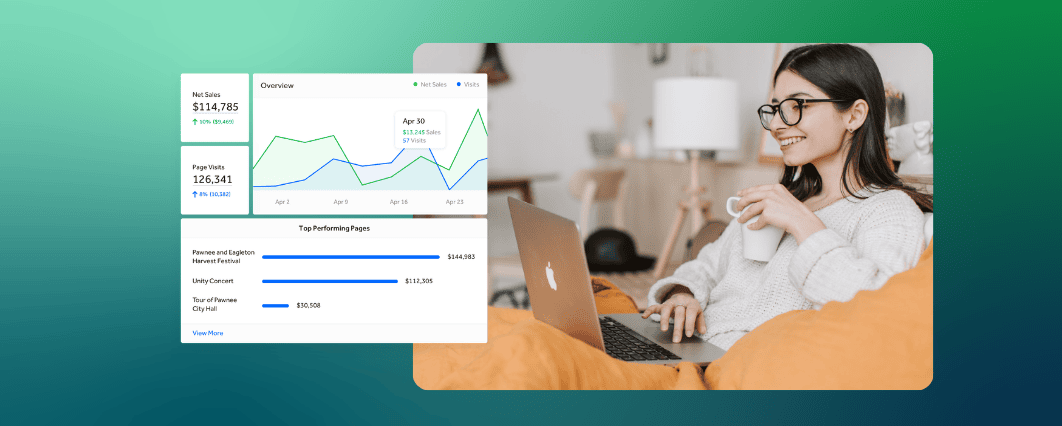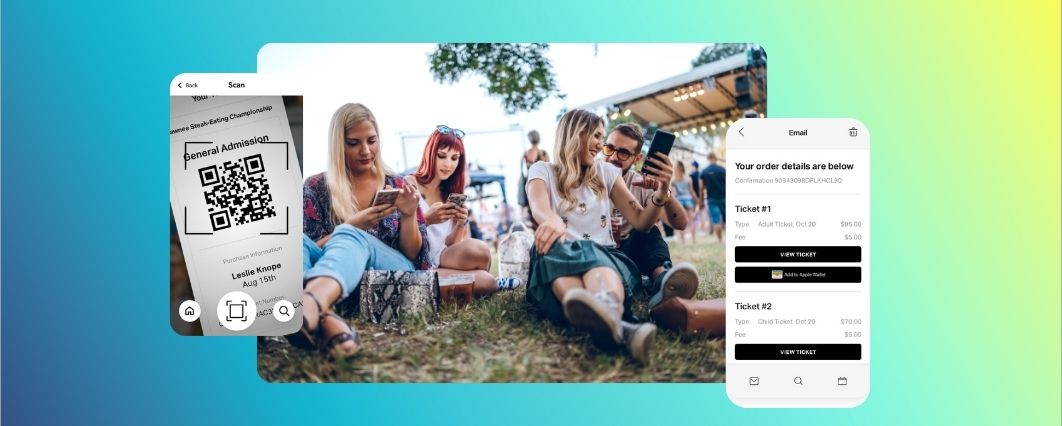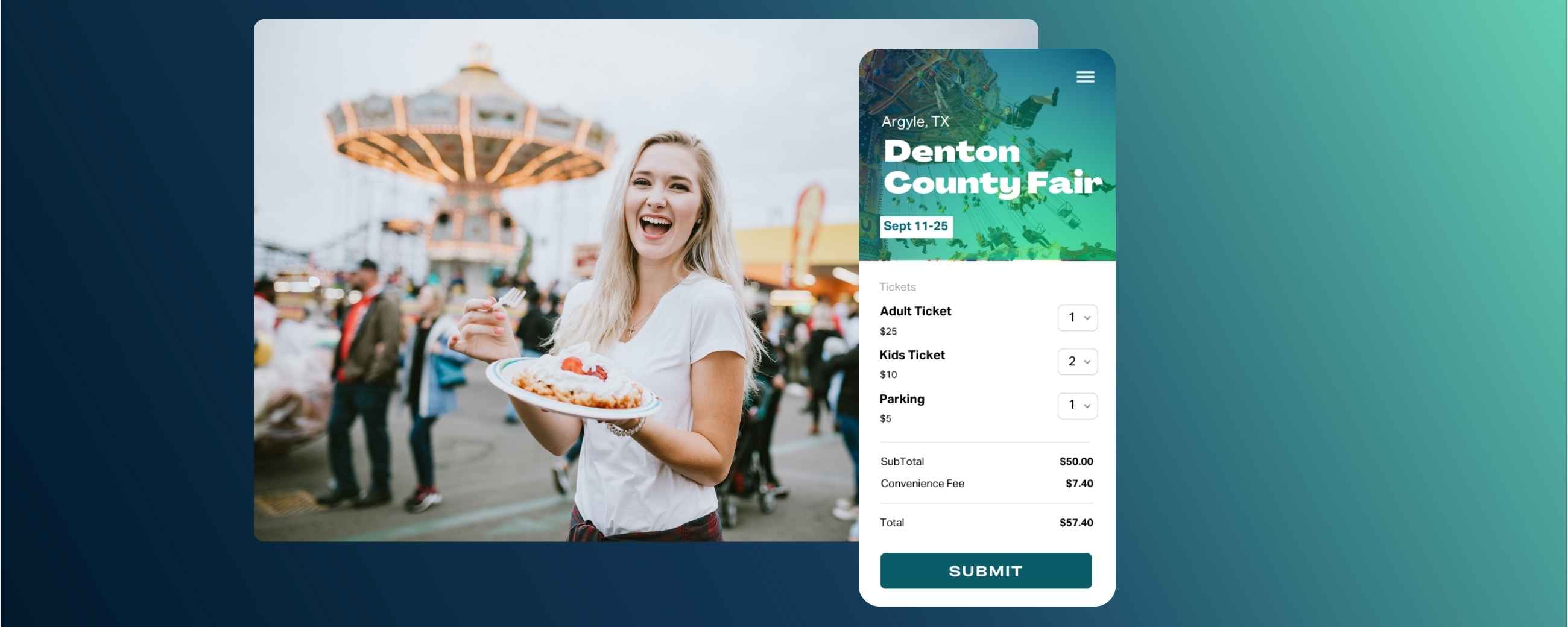The Ultimate Guide to Effective Event Advertising
As an event organizer, you pour your heart and soul into crafting the perfect event experience. But what good is an amazing event if no one knows about it? For an event to be successful, you need to get the word out! Strategic event advertising is crucial for attracting the right audience, generating buzz, and ensuring a strong turnout.
In the rest of this comprehensive guide, we'll delve into strategies for understanding your target audience, setting clear advertising goals, choosing the right advertising channels, and creating compelling advertisements that resonate with your audience. You'll learn how to leverage data-driven insights to optimize your advertising efforts and elevate your event to new heights of success. Let’s dive in!
Understanding Your Target Audience
Before you dive into crafting your rock-solid event advertising campaign, it's crucial to thoroughly understand your target audience. Getting to know your audience inside and out is the key to creating personalized and effective messaging that resonates and drives results.
First, delve into the demographics. You’ll want to nail down the basics: age, gender, location, and other essential stats. Are you aiming for tech-savvy millennials at the techno music fest or families looking for a Saturday of fun on the farm? Knowing these details will help you tailor your campaign to speak directly to them.
Next up, tackle the psychographics by digging deeper into their interests, values, and behaviors. What are their passions? What do they value most? How do they spend their free time? These insights allow you to connect on a more personal level, crafting messages that truly resonate.
Don’t forget event-specific factors as well. Look at past attendance data to understand what motivates your attendees to come to your event and keep coming back. Are they seeking entertainment, community involvement, or an immersive experience? Identifying this will help you highlight the aspects of your event that will most appeal to them. We recommend using our new-to-the-industry feature, Contact Insights, to gather this data and leverage it for your future events. The enrichment service is GDPR compliant, and your data remains private.
Create a highly personalized advertising campaign that speaks directly to your audience’s hearts and minds. This means your messages will not only catch their eye but also drive them to snag their tickets while they can!
Setting Clear Goals for Your Event Advertising Campaign
Clear, measurable goals act as the compass for your event advertising campaign: they direct the focus of your efforts and help you stay on the right track.
Examples of advertising campaign goals include increasing event awareness, driving ticket sales, attracting a specific audience, generating leads, enhancing brand recognition, and fostering community engagement.
If your goal is to increase event awareness, for instance, you might measure success through social media impressions and website traffic. If driving ticket sales is your priority, track the conversion rate from ads to purchases. Attracting a specific audience could involve analyzing the demographic data of your attendees while generating leads might focus on sign-ups for more information or early bird registrations. Enhancing brand recognition can be measured through engagement metrics, such as shares and mentions, and fostering community engagement could look at interaction levels on your event's social platforms. By aligning your advertising efforts with these goals, you can make data-driven decisions, ensuring every dollar you spend moves you closer to a successful event.
Choosing the Right Advertising Channels
One key to reaching your target audience is choosing the right advertising channels. To get started, consider where your audience spends their time and how they consume media.
→ Online channels like social media platforms, search engine advertising, display advertising, and event listing websites are fantastic for reaching the tech-savvy crowd. They also offer precision targeting and real-time engagement. Platforms like Facebook and Instagram are great for visual content, while Google Ads are helpful for capturing the interest of those actively searching for events like yours.
→ On the flip side, don't overlook the power of offline channels. Print media, outdoor advertising, direct mail campaigns, and radio or television can be incredibly effective, especially for reaching local audiences or those who prefer traditional media.
As you evaluate different channels, consider factors like reach, engagement potential, and, of course, your budget. If possible, use a mix of both online and offline channels to maximize your event exposure and cover all the bases.
Creating Compelling Event Advertisements
Compelling event advertisements is essential to capturing your audience's attention and driving engagement. Use eye-catching visuals that stand out and resonate with your target audience—think vibrant images, bold graphics, and captivating videos. Pair these visuals with concise and compelling copy that highlights the event's unique value propositions and key details. Ensure your branding is consistent across all advertisements to build recognition and trust.
Make it clear and easy for your audience to take the next step—whether it's buying tickets, signing up, or sharing the event—with an obvious Call-to-Action (CTA).
Of course, in today’s event world, you can’t forget mobile-friendly design. It’s safe to assume many of your ads will be viewed on a phone. Optimize for mobile to ensure your message is accessible and appealing on all devices.
Utilizing Social Media for Event Advertising
Leveraging social media is a game-changer for event advertising. Start by establishing a strong organic presence with regular posts and engaging content, and then follow the tips below.
→ Post interactive stories to keep your audience engaged.
→ Use paid social media advertising to target specific demographics and amplify your reach.
→ Collaborate with influencers who can spread the word to their followers and add credibility to your event.
→ Run contests and giveaways to create a buzz and encourage sharing.
→ Incorporate a sneak peek to build positive anticipation.
→ Engage with your audience through comments and direct messages. Remember, social media is all about connection.
If implemented well, these strategies will drive event awareness, attendance, and eventually revenue.
Leveraging Email Marketing for Event Promotion
With an unparalleled ability to directly engage your target audience, email marketing is one of the most powerful tools for event promotion. Follow these guidelines to effectively engage your target audience and drive registrations through email marketing.
→ Segment your email lists: Divide your audience into specific groups based on demographics, interests, and past interactions. For example, if you're organizing a music festival, you can segment your email list into musical preference groups, age groups, or past attendance at similar festivals.
→ Use compelling subject lines: Grab attention with short, clear, and enticing subject lines. For instance, you can include the recipient's name or reference their past ticket purchases to grab their attention and entice them to open the email.
→ Create informative, visually appealing content: A captivating reel showcasing last year’s performers on stage with a sell-out crowd at sunset will likely speak louder than any opening sentence or subject line. Use images and videos to showcase event highlights.
→ Include clear calls-to-action (CTAs): With persuasive language and standout design, prompt recipients to register, purchase tickets, or share the email. Whether you’re prompting recipients to "Get [their] Tickets Now" or "Share with Friends," make it easy to include compelling CTAs that encourage recipients to take the next step.
→ Implement automated email campaigns: Instead of sending all attendees and potential attendees the same emails, use TicketSpice to set up a drip campaign that automatically stops sending emails once someone purchases a ticket. You can also use drip campaigns to set up invitations, reminders, follow-ups, or thank-you emails—all without any manual intervention.
Collaborating with Influencers and Industry Partners
If you’re looking to amplify your event's reach and impact, collaborating with influencers and industry partners could be the game-changer you've been searching for. Partnering with influencers allows you to tap into their loyal followership and leverage their credibility to promote your event to a wider audience. Similarly, teaming up with industry partners gives you access to their networks and resources, amplifying your event's advertising reach.
As a best practice, reach out to influencers and industry leaders with shared core values. Consider asking influencers to promote your event in exchange for compensation or perks. Whatever terms you decide on, make sure it’s a win for everyone involved. By aligning with influential individuals and businesses, you not only expand your event's reach but also enhance its credibility, ultimately driving attendance and success.
Tracking and Measuring the Success of Your Event Advertising
Event Advertising is far from a set-it-and-forget-it project; it requires consistent monitoring, tracking, and measuring to be successful and have maximum impact.
By diligently monitoring key metrics such as reach, impressions, click-through rates, conversion rates, return on investment, and brand awareness, you gain valuable insights into the effectiveness of your marketing strategies. These metrics provide a clear picture of how your audience is engaging with your ads and whether they're driving the desired actions, such as ticket purchases or event registrations.
With this data at your fingertips, you can make informed, data-driven decisions to optimize your current campaigns and shape future advertising efforts for even greater impact. Don't just advertise blindly—use TicketSpice data analytics to empower you with the insights you need to elevate your event marketing game.
Common Mistakes to Avoid in Event Advertising
Event advertising can be tricky, but if you’re aware of the common pitfalls ahead of time, you can avoid them.
One major mistake is not setting clear goals. Without a starting definition of success, there are no guideposts to direct or measure your efforts. Another mistake is neglecting to understand your target audience. If you don't know who you’re talking to, you risk communicating irrelevant content to the wrong crowd. Lack of consistency in advertising is another pitfall to avoid. Disjointed or low-quality ads can confuse or deter potential attendees.
Relying on just one channel will limit your reach, so avoid this mistake by diversifying your channels. Finally, if you forget to monitor your metrics, results will stagnate. Regularly track performance and adjust your strategy to improve results.
By sidestepping these mistakes, you ensure your advertising efforts are effective.
Final Takeaways
In the fast-paced world of event planning, mastering the art of event advertising is essential for success. By diligently tracking and measuring the performance of your advertising campaigns, leveraging data-driven insights, and avoiding common pitfalls, you can ensure your advertising efforts are not just effective but impactful. With TicketSpice by your side, you'll have the tools and knowledge you need to craft compelling advertisements, reach your target audience, and drive attendance for your event. So, go ahead, dive into the world of event advertising with confidence, and watch as your event shines brighter than ever before.
Have questions? Don’t hesitate to reach out to our support team.
We’re here to help you have the best event ever!
— The TicketSpice team




















.jpeg)


